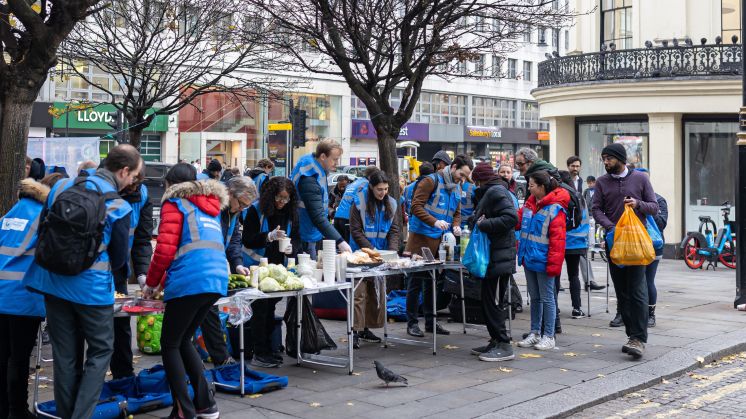 David Beel highlights the ways in which Greater Manchester’s voluntary, community and social enterprise sector could seek to traverse the changing governance structures of the local Combined Authority, with the aim to move towards a more progressive form of devolution for the city-region.
David Beel highlights the ways in which Greater Manchester’s voluntary, community and social enterprise sector could seek to traverse the changing governance structures of the local Combined Authority, with the aim to move towards a more progressive form of devolution for the city-region.
The delivery of devolution to Greater Manchester has created a variety of tensions as well as opportunities for civil society actors as they have had to wrangle with new governmental structures. This reflects the broader framing of UK devolution to city-regions. To date, this has been largely focused upon engendering agglomerated economic growth at the city-region scale. Within the Greater Manchester Combined Authority (GMCA), devolution for economic development has sat alongside the devolution of health and social care as well (unlike any other city-region in the UK). This has in effect mobilised civil society actors in Greater Manchester to find ways collectively to exert influence upon the type and style of devolution taking place.
Devolution to the GMCA to date has been a centrally-led process with only minimal and piecemeal consultation and raises a series of questions with regards accountability. This is reflected in how it has been framed and shaped by central government in terms of what they see as the appropriate pathway to growth, through a deal-making process of negotiation.
Unfortunately, this pathway is largely dependent upon an economic model focussed on enhancing processes of agglomeration which in turn only serves to further create uneven development within the city-region. If growth is to be inclusive, this model has to change and devolution has to find ways to offer opportunities that significantly move beyond the model laid out by central government.
Devolution has also sat alongside a continuing policy of austerity which has seen Local Authority budgets greatly reduced. Austerity measures have and will reportedly cost the GMCR between 2015 and 2020 an estimated £1.4bn from their welfare budgets.
In response to the environment above, the Greater Manchester Voluntary, Community and Social Enterprise (VCSE) Devolution Reference Group formed to address civil society positioning in the city-region and to push towards a more socially responsible form of devolution. VCSE groups, although cautious towards devolution and aware of their own less-than-democratic positioning, have also been interested to see what it may offer and how they can play an important role within this.
Hence, my research identified four key inter-connected areas that can position the sector as an appropriate interface through which a more inclusive economy might be delivered:
Inclusive governance for an inclusive city-region
The need to include the experiences of the VCSE sector in governance structures so that their collective experiences of delivery to areas and communities of need can be called upon. The economic focus of devolution and development of local enterprise partnerships which has engaged businesses communities directly around economic development needs to be balanced with a similar engagement to VCSE groups.
Scale and representation
Although devolution offers potentially more powers at a city-region scale it could also take powers and control away from a local authority scale. Consequently, it can leave many VCSE groups, who often (not always) work within a specific locality, place-based community or local authority, further away from the processes of decision-making and commissioning. This, in turn, potentially reduces their capacity to be an effective advocate for the areas and people they serve and it can also threaten their very existence depending upon the processes of central decision making.
Inequality hinders growth
The evidence from our research shows that inequality and social disadvantage hinders growth or at best, creates the wrong kind of growth due to it not being distributed evenly (see Bowman et al., 2014). As is identified by VCSE members:
I think of Greater Manchester as having a ring donut economy, it’s a lot like a North American city. So you have thriving city centre, which it didn’t have twenty-five years ago. The suburbs actually doing ok and then the middle bit. (Social Enterprise Leader 1)
The converse is that those policies, which actively promote labour market inclusion, will contribute to sustainable growth and also assist with maintaining productivity. The current model of growth though restricts access to employment and skills initiatives and hence the city-region will accordingly struggle to meet targets.
Social innovation, multifaceted thinking and economic growth
VCSE Reference Group members all note how the increased devolution offered to GMCR offers real opportunities to do things differently to the supposed model of growth offered by central government, but this opportunity has to be grasped. The devolution of health and social care in Greater Manchester (unlike in other city-regions) is one such opportunity but this again needs radical rethinking if it is to fulfil its potential.
__________
Note: the above draws on the author’s co-authored the article Local Economy Paper – Connected growth: Developing a framework to drive inclusive growth across a city-region (with Martin Jones, Ian Rees Jones and Warren Escadale), published in Local Economy: The Journal of the Local Economy Policy Unit.
 David Beel is Senior Researcher on the ‘Spaces of New Localism’ project, part of the WISERD Civil Society Research Centre at Staffordshire University.
David Beel is Senior Researcher on the ‘Spaces of New Localism’ project, part of the WISERD Civil Society Research Centre at Staffordshire University.
All articles posted on this blog give the views of the author(s), and not the position of LSE British Politics and Policy, nor of the London School of Economics and Political Science. Featured image credit: Pixabay/Public Domain.








Devolution simply becomes irrelevant due to the fact it has no tax raising ability this government holds the purse strings.